What is Hormonal Acne?
While you are going through puberty, acne will usually appear in the T-zone (which includes your forehead, nose, and chin.) As you age, that hormonal acne will migrate and start to form on the lower part of your face, near the bottom of your cheeks, around the mouth and along your jawline. This acne will usually take the form of blackheads, whiteheads, or cysts. Hormonal acne may be caused by an increase of hormones due to menstruation, polycystic ovarian syndrome, menopause and increased androgen levels. A fluctuation in hormones may aggravate your acne by increasing skin inflammation, oil production, clogged hair follicles and the proliferation of acne-causing bacteria called Propionibacterium acnes.
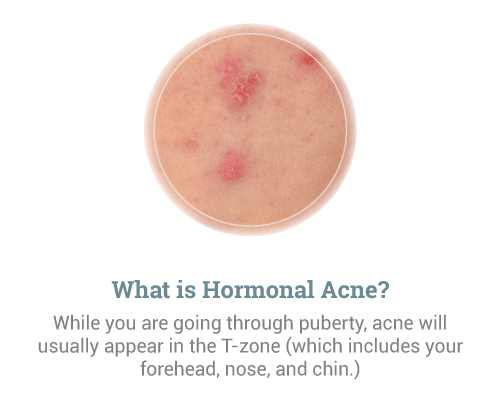
Treating Hormonal Acne
When it comes to hormonal acne, typically over-the-counter products are not effective. Hormonal acne takes the form of cysts, and these bumps are formed deep under the skin. This means that they are out of reach of most topical medications. Taking an oral medication can work from the inside, to balance your hormones and help clear up the skin. Here are some of the most common treatments for hormonal acne;
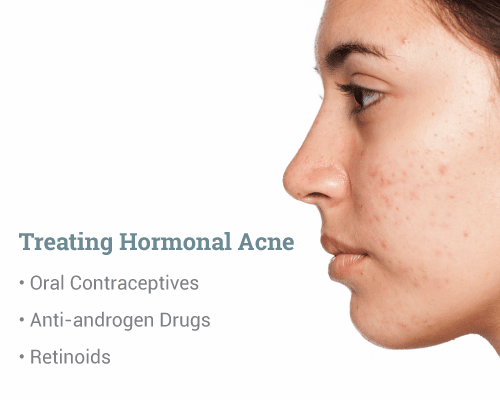
Oral Contraceptives
Oral contraceptives (like birth control) used for hormonal acne treatment contain ethinyl estradiol, drospirenone, norgestimate, norethindrone. These ingredients target the hormones that can cause acne.
Anti-androgen Drugs
Anti-androgen drugs work by decreasing the hormone androgen. Too much androgen contributes to acne by interfering with hair follicles that regulate skin cells and increasing oil production.
Retinoids
Retinoids are derived from vitamin A, and retinoid creams, gels, and lotions are available over the counter. If your acne is mild, this may be a great option for you! If your acne is a little more severe you should see your doctor about getting a prescription-strength formulation. If you add a topical retinoid to your regimen, it’s important to apply sunscreen daily as retinoids can increase your risk of sunburn.
No reputable dermatologist would let you walk out of the office without helping you establish an effective skin care regimen unique to your specific skin type and condition. At Art of Dermatology in New York City, Dr. Jessica Krant takes a personalized approach to skin care and is happy to recommend research-tested products to help improve the overall look and feel of your complexion.
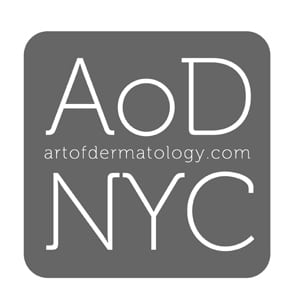
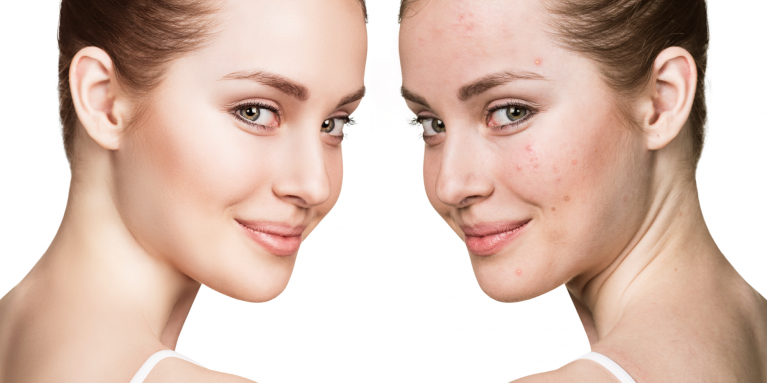
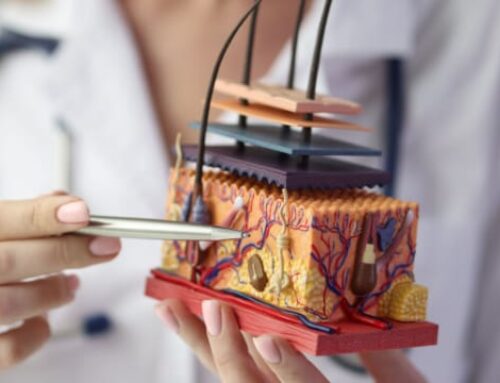











Leave A Comment